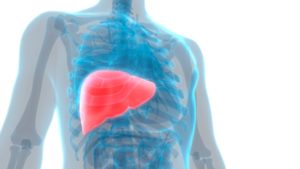 It’s hard to rank one’s vital organs in order of importance; each plays a crucial role in health and survival. But one that does not receive its fair share of notoriety is the liver.
It’s hard to rank one’s vital organs in order of importance; each plays a crucial role in health and survival. But one that does not receive its fair share of notoriety is the liver.
To maintain a healthy liver, there’s not necessarily a lot you have to do—it’s pretty resilient. But it is sensitive to fat accumulation. A liver that’s over five-percent fat is a “fatty liver,” which has the potential to impair performance and boost the risk for high triglycerides, insulin resistance, and metabolic syndrome.
Advertisement
Far from two sources, excessive alcohol consumption and weight gain, and the obesity epidemic are fuelling the rise of Non-Alcoholic Fatty Liver Disease (NAFLD) cases. Roughly a quarter of US adults have NAFLD, and half of obese people do.
Losing weight, however, may offer big-time benefits for liver health. One review published last summer in JAMA Internal Medicine found that losing seven-percent of body weight—while maintaining weight loss—can have long-term improvements for NAFLD. The review also noted that the modality didn’t matter, as long as weight came down. So, whether you’re deciding to make better food choices, eat less, or boost output, it can all have a positive effect on liver health.
In addition to shedding some pounds, there are some techniques that may aid your efforts. One is to cut down on calorically-dense sugary foods. These foods contribute to fat gain around the midsection, which is closely associated with poor liver health. Opting for a high-nutrient low-calorie diet is often recommended and can take a lot of pressure off your liver’s workload.
Some specific foods that are associated with improved liver health include:
- Coffee
- Oatmeal
- Green tea
- Berries
- Garlic
- Grapefruit
- Grapes
When it comes to liver health, one thing to be wary of are “detox diets.” Liquid detoxes will not aid your liver health—or detox your body. Instead, focus on making longer-term lifestyle adjustments with your liver in mind.
